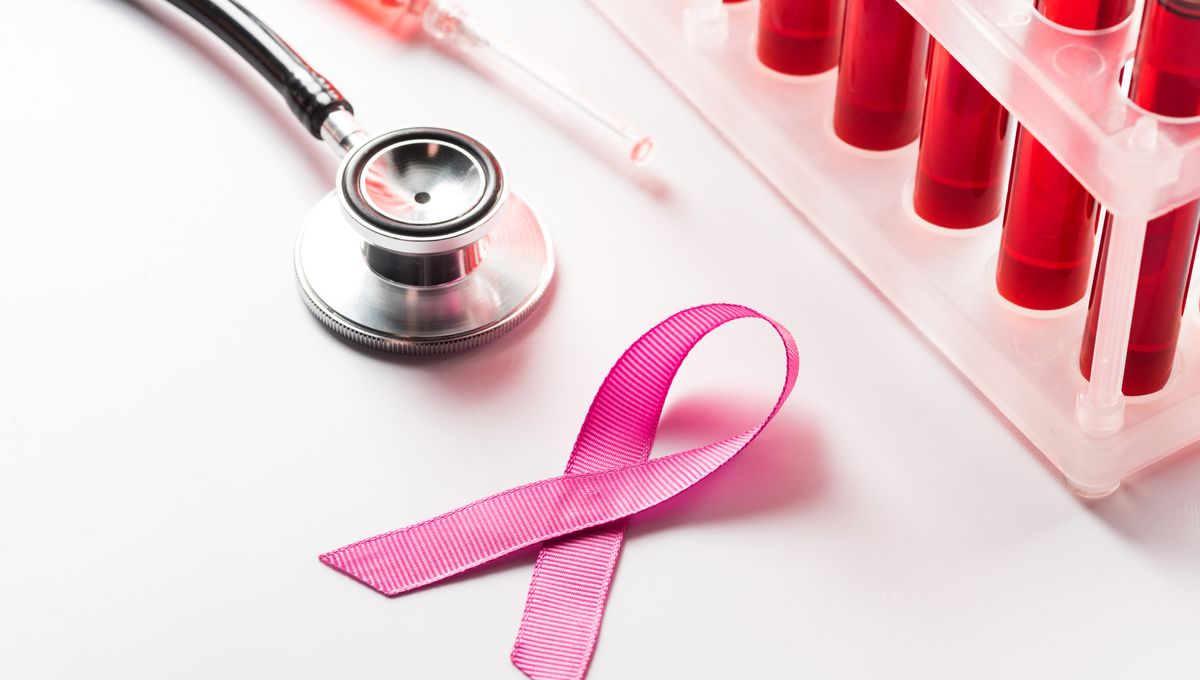
The results of a small clinical trial of a vaccine for an aggressive form of breast cancer have been presented at a conference, and the researchers say there’s cause for optimism. The 16 patients in the trial all received three doses of the vaccine, with the majority developing a robust immune response and no major side-effects reported.
Triple negative breast cancer (TNBC) only represents about 10-15 percent of breast cancer cases overall, but these tumors tend to grow faster and there are fewer treatment options available for them. This cancer can also have a high risk of recurrence, even after successful treatment.
“Triple negative” refers to the fact the cancer cells lack receptors for two hormones, progesterone and estrogen, and they also don’t overproduce a protein called HER2. This means that many traditional breast cancer drugs, which target HER2 or the hormone system, do not work.
New treatment options for TNBC are therefore sorely needed, so the news back in 2021 that a vaccine was entering clinical trials was welcomed. This vaccine targets a protein called α-lactalbumin, which is present in a large majority of TNBC tumors.
The aim of this early human trial was to determine the maximum dose people could tolerate, and to check whether it produced the immune response the researchers were looking for.
Sixteen patients who had previously been treated successfully for TNBC were enrolled in the trial. They received three doses of vaccine, with two weeks in between each dose. Their immune responses were assessed by measuring two indicators of a T cell immune response (proteins called interferon-γ and interleukin-17), as well as antibodies, which are produced by B cells.
When given the maximum tolerated dose determined by the study, none of the participants reported any significant adverse effects from the vaccine, such as flu-like symptoms. The only side-effect was irritation of the skin at the injection site. The vaccine was also successfully able to evoke a T cell immune response in 75 percent of the study volunteers, although an antibody response was only observed at higher doses.
“The data from our Phase 1 trial to date has exceeded our expectations, and we are pleased with our progress,” said Dr Amit Kumar, Chairman and CEO of vaccine developers Anixa Biosciences, in a press release. “This vaccine is designed to direct the immune system to destroy TNBC cancer cells through a mechanism that has never previously been utilized for cancer vaccine development.”
Anixa, in collaboration with the Cleveland Clinic, is currently recruiting for another trial to test a combination of this vaccine and an immunotherapy drug called pembrolizumab, which is already used to treat various types of cancer. They will trial this combination treatment in patients with TNBC who are still showing evidence of disease after surgery and chemotherapy.
A second trial is also being planned to test the safety of the vaccine in patients planning preventative mastectomies due to a high genetic risk of developing breast cancer in the future.
“Now, that’s a tough group to study because it’s not a large group,” explained Dr G. Thomas Budd, a medical oncologist at the Cleveland Clinic, in a conversation with CancerNetwork®. “It’s going to take a long time for patients to develop cancer, and of course there are surgical options at present. But it would be a very exciting approach, and we’re really looking forward to trying to get funding to do these additional trials.”
Budd continued in the press release, “There is a large unmet need for preventing TNBC, an aggressive form of breast cancer with few targeted treatment options available. […] Our hope is that future studies will demonstrate that the antigen-specific T cell responses we observed translate to the prevention of breast cancer recurrence.”
The results were presented at the 2023 San Antonio Breast Cancer Symposium.
Source Link: Major Vaccine Breakthrough Could Spell Hope For Treating Aggressive Breast Cancer